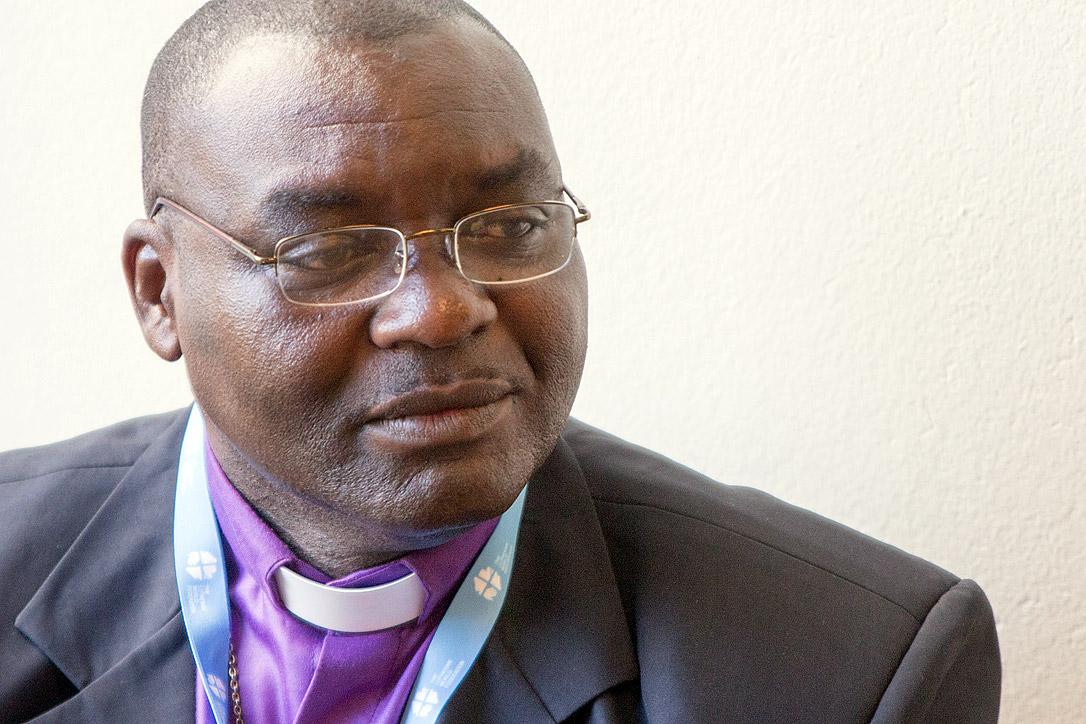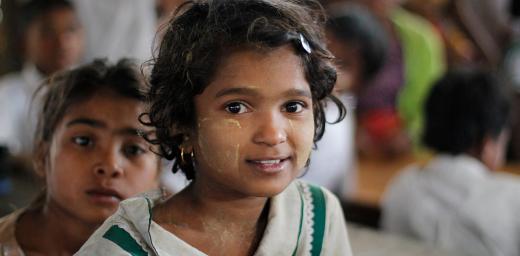Holding together a fragile peace in the Central African Republic

Churches in the Central African Republic strive to help warring factions reconcile, says newly elected president of the Evangelical Lutheran Church of the Central African Republic, Rev. Dr Samuel Ndanga-Toué. Photo: LWF/S.Gallay
Dialogue is essential to diffusing sectarian conflict, says Lutheran church leader Ndanga-Toué
(LWI) – When 50-year-old Rev. Dr Samuel Ndanga-Toué heard the news that he had been elected president of the Evangelical Lutheran Church of the Central African Republic, he remembers being overcome with emotion.
“I was thankful for the grace and favor of God. It was really God’s grace to be chosen from many candidates and to be the people’s choice,” he says of his election by the Lutheran church synod on 25 April 2015.
But what is even more overwhelming are the many challenges religious leaders like him face in a country that is caught in an intractable cycle of violence which has resulted in population displacement and death, destruction of homes and properties, increasing poverty and growing mistrust between ethnic and faith communities.
“Conflict has plunged the country into total chaos and has pitted Christians and Muslims against each other. Our church’s response is that we are making a big effort to create dialogue, to come together again, to strive for reconciliation through peace building and social cohesion,” Ndanga-Toué says.
CAR has experienced periods of instability since its independence from France in 1960. After the Seleka rebel alliance seized power in 2013, the country descended into ethnic and sectarian violence, and tens of thousands fled their homes.
The United Nations High Commissioner for Refugees estimates that at the peak of the unrest in 2014, more than 930,000 people had been displaced, including an estimated 460,000, who fled to neighboring countries. More than half of the population of the landlocked country is still needs humanitarian assistance. New waves of violence occurred as recently as last month.
“Peace is very fragile at the moment. The church has established platforms at national and regional levels for Christians and Muslims to sit together and talk,” Ndanga-Toué adds. “One of the main objectives of this is to reach a place of forgiveness and tolerance, and to look forward together.”
Churches urgently need support in order to reach out to people in poverty, he adds. “One thing our church does is to initiate small projects where there could be a financial component. We are helping people to start up a small business with livestock, agriculture, and also coming together as a group to work on a plot of land.”
The Lutheran World Federation collaboration with its CAR member church includes assistance for food security, women’s empowerment, institutional support as well as emergency humanitarian response for the internally displaced people in the country.
(LWI correspondent Moyette Marrett interviewed Rev. Dr Samuel Ndanga-Toué during his recent visit to Geneva.)





